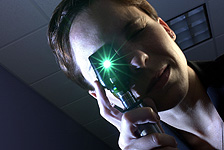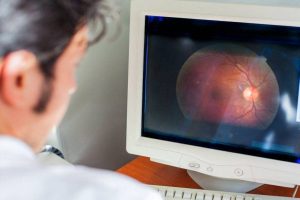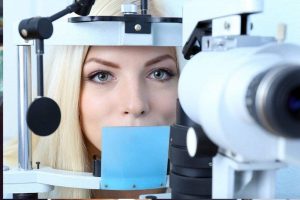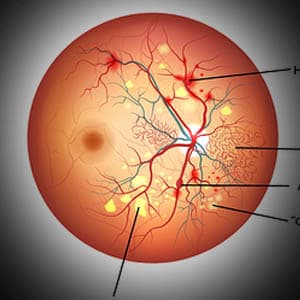Having Difficulty Seeing at Night?
Do you find it difficult seeing while driving at night or reading in a dimly lit room? You most likely have nyctalopia, also known as night blindness.
Read MoreCan Sugar Affect Eye Health?
We all enjoy a sweet treat now and then, but too much sugar in our diet can come at a price. Here’s how eating excessive
Read MoreEyes and Obesity
Obesity is a global medical epidemic, research clearly shows the direct correlation between obesity and eye diseases. Studies show that obesity increases the risk of
Read More9 Ways Eyes Change With Age
As you age, you may discover that your vision just isn’t as sharp as it used to be. Vision changes can occur over time and cause you to wonder if what you are experiencing is normal or if you should schedule an appointment with your eye doctor.
Read MoreGuide to Low Vision Devices
With the large variety of low vision devices now available on the market, our guide will help you choose a magnifier that best suits your
Read MoreDiabetes: Why You Shouldn’t Skip Your Eye Exams
Annual eye exams can prevent 95 percent of vision loss. Diabetes affects around 10 percent of the American population, yet nearly 60 percent of people
Read MoreWhat Is a Macular Hole?
Macular holes affect up to 4 in 1,000 people above the age of 55. Early detection of a macular hole can reduce your risk of
Read MorePregnancy Complications: When to See an Eye Doctor
How do pregnancy complications affect the eyes? Pregnancy is a time filled with lots of excitement and emotions— but pregnancy can also have an impact
Read MoreNight Blindness: Treatments and Prevention
Night blindness (nyctalopia) affects vision clarity in low light conditions and can significantly impact performance of daily activities. Night blindness, despite its name, does not
Read MoreWhat Causes Night Blindness?
Night blindness (nyctalopia) causes reduced vision in low light conditions, and can be a source of fear and anxiety for those affected by it. Decreased
Read MoreWhy Does Diabetes Cause Blurry Vision?
If you have diabetes, high blood sugar levels may be the cause of your blurry vision. Blurred vision, or any changes to your vision can be quite concerning. But before you panic, understand that blurry vision is commonly associated with diabetes and can sometimes just be a temporary problem.
Read More4 Ways Diabetes Can Affect Your Vision
Diabetes can increase your risk of eye disease and permanent vision loss. Diabetes affects the way your body regulates glucose (sugar), and prevents the glucose
Read MoreAre You at Risk for Diabetic Eye Damage?
An estimated 30 million Americans have diabetes, and approximately 25 to 45 percent of them will develop some form of diabetic eye damage. According to
Read MoreA Deeper Understanding of Diabetic Retinopathy
Diabetic retinopathy is the leading cause of vision loss among people with diabetes. If you have been diagnosed with diabetes, it is critical to ensure
Read MoreHow Is Diabetic Retinopathy Treated?
Without proper treatment, diabetic retinopathy can lead to vision loss and even blindness. Diabetic retinopathy occurs in four stages and can progress rapidly if not treated and monitored properly. Treatment of this sight-threatening disease may include different methods, depending on the stage of the disease.
Read MoreWhat is Diabetic Retinopathy?
Diabetic retinopathy is a serious sight-threatening complication of diabetes that can lead to blindness. This ocular disease is caused by high levels of sugar in the bloodstream and results in progressive damage to the light detecting retina responsible for sending visual signals to the brain.
Read More














